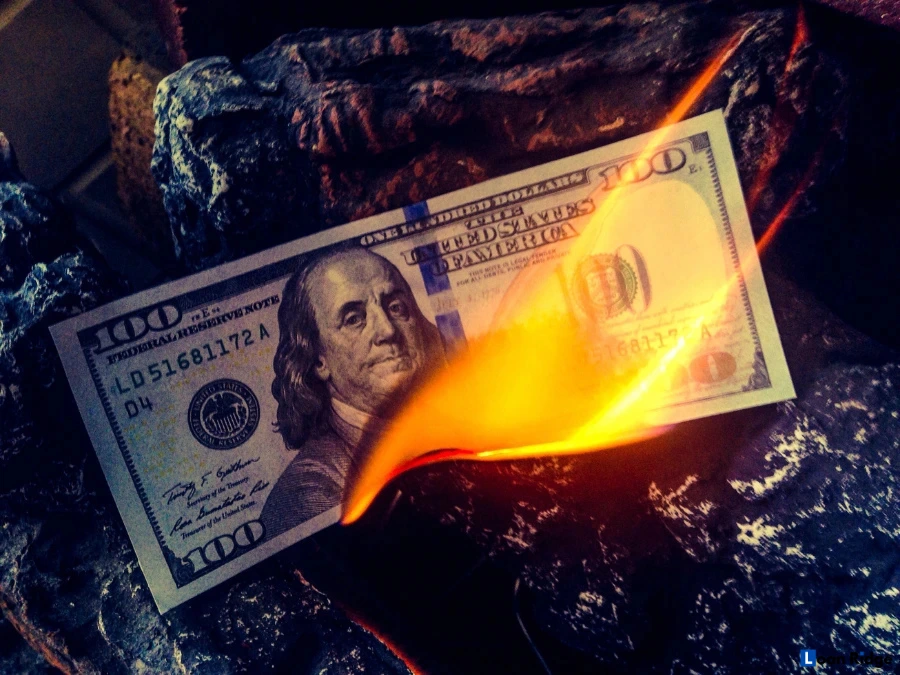It’s no wonder why some people can easily be attracted to loans that don’t require a credit check when borrowing money. While such loans may seem appealing on the surface, it is important to understand the possible risks involved before making any financial decisions. In this section, we will explore the possible dangers of borrowing without a credit check and the risks that come with it.

Before looking into the associated risks with borrowing, one has to understand the role and importance of credit checks in loan processing. Credit checks make it very informative for the lender as regards the assessment of creditworthiness, the credit history of repayments, and general financial stability on the part of a borrower. It aids them in determining how much risk comes along with issuing a loan.
Credit history is important in borrowing because it provides the lender with insight into how likely a borrower will repay their debt responsibly. It also allows the lender to consider the borrower’s present financial state and their ability to manage credit properly.
Without a credit check, lenders cannot properly determine a borrower’s ability to pay back the loan. The lender may need to balance possible risks with high interest or extremely strict terms and conditions.
Overall, credit checks are part of the lending process that protects both borrowers and lenders from financial risks. In essence, credit checks are crucial in ensuring that loans are granted responsibly by providing the lender with critical information on the borrower’s creditworthiness and current financial situation.
One of the major risks of lending without credit checks is that lenders accord almost negligible scrutiny to the financial state of the borrower. Because a credit check is not carried out, lenders typically do not have all the information necessary to analyze how much risk is involved in the transaction. They then charge higher rates to cover the extra risks taken.
This lack of scrutiny can lead to borrowers taking out loans they cannot afford to repay, which can worsen their financial situation in the long run. Further, high interest rates associated with these loans can lead to a cycle of debt, as borrowers struggle to keep up with repayments and may have to borrow more money to cover their expenses.
These types of loans are normally short-term solutions, and they should not be considered for long-term financial planning. Before a borrower enters a loan, he should exhaust all the other avenues available to him, which include improving the credit score and seeking advice from professional persons in the field of finance.

Among the possible risks, there is the issue of predatory lending in loans that are not considered a credit check. A predatory lender might make loans with high interest, hidden fees, and very bad conditions to a person in desperate need of financial support. They tend to target vulnerable borrowers who are often not well equipped with information regarding the true costs associated with such a loan or those with few alternatives for obtaining credit.
It also leads to a debt cycle that could cause the borrower to be delinquent on repayments, entangled with added interest and other fines. Sometimes this may be taken further by some lenders engaging in outright illegal practices, such as threatening or seizing borrower properties.
“Predatory lending practices can trap borrowers in a cycle of debt and financial instability, making it difficult for them to achieve long-term financial goals.”
Borrowers should be very careful and research the lenders well before accepting any loan. You also need to read and understand the conditions involved in a loan, which may include interest rates, fees, payment schedules, and consequences for late or missed payments.
In such a case, if the borrower feels exposed to some predatory lending practice, he may immediately approach his state’s attorney general office or Consumer Financial Protection Bureau for help.
In short, lending without credit checks can expose borrowers to potential predatory practices. To prevent them from falling into the debt trap or experiencing financial instability, one needs to research the lender properly and understand all the conditions involved in the loan they intend to take.

One of the biggest risks associated with credit-less borrowing is a serious lack of consumer protection and low recourse for borrowers. Unlike more conventional loans, which are very strictly regulated, loans without credit checks may fall outside of many regulations, leaving the borrower open to unfair lending practices.
Their avenues for redress in case disputes or issues arise with the lender may also be limited. Lack of protection and avenue of appeal may result in financial losses, which can result in damaged credit scores and unfathomable legal issues.
Accordingly, it is recommended that borrowers take due time to research lenders and the fine print before applying for any type of loan. This includes considering other financial options available, enhancing their creditworthiness, and consulting a professional advisor prior to any borrowing decision.

Lending without a credit check may sound like an easy way out for those with limited options in the credit world, but it comes with significant and serious long-term effects. Among the most important factors to consider is how this would affect your credit score. Since these loans mostly do not require a credit check, successful repayment may not positively contribute to an increase in building or improving your credit history. It also means that you might be leaving certain things undone, which, with your reliance on no credit check loans, could lead to potential future improvement in your credit score.
Conversely, defaulting on a no credit check loan can damage your credit score severely, which can have long-term consequences. In addition to damaging your credit history, defaulting on a loan can also lead to debt collection efforts, including lawsuits or wage garnishment. These consequences can have a ripple effect on your financial future, making it harder to obtain future loans or credit on favorable terms.
It is important to understand that building healthy credit takes time and effort, and relying on no credit check loans may hinder your progress. Instead, consider alternatives such as secured loans, credit-builder loans, or credit cards to help establish or improve your credit history.
While considering your options, weigh the consequences of the steps you will take. While no credit check loans may save you for the moment, the aftereffects can be drastic on your financial stability and future. Research all your options, enhance your creditworthiness, and seek expert opinions before making decisions about borrowing.

If you are considering borrowing without a credit check, then you need to look at the risks involved. Though this loan may sound like the easiest way out when you have bad credit or a poor credit history, it could have a really negative consequence on your finances in the long run.
One of the biggest risks associated with no credit check loans is the limited scrutiny by lenders, which may result in higher interest rates and unfavorable terms for borrowers. Besides this, there is a great potential for predatory lending practices that trap an individual in a debt cycle. The borrower should be cautious and do his research on lenders to avoid falling into the hands of such practices.
Besides, loans without credit checks are not adequately secured regarding consumer protection and leave the borrower with little recourse in case of disputes or issues with the lender. This exposes people to unfair and sometimes unethical means of lending.
Another serious risk associated with creditless borrowing is the one connected with probable consequences for one’s credit score and financial future. These loans may not positively contribute to building or improving a borrower’s credit history, and defaulting on them can lead to further credit damage and difficulties in obtaining future loans or a credit on favorable terms.
It is advisable to explore alternative financial solutions, improve creditworthiness, and contact professionals before making any borrowing decisions. While it may take longer to secure traditional loans, the risks associated with no-credit-check loans can have long-term consequences that outweigh any short-term benefits.